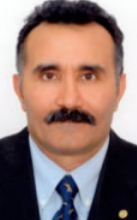How ITU Standardization Supports Climate Action
Climate change demands global action – we reinforce that action by working together in standardization. International Telecommunication Union (ITU) standards are developed and agreed by consensus. Standardization is a key avenue for building mutual trust and understanding, helping partners to agree practical means to move forward together.
ICT enables innovation in every industry and public-sector body, with significant implications for the work of ITU.
ITU membership is growing in diversity. We see new partners moving forward together in ITU standardization work addressing energy, transport, healthcare, financial services, agriculture, smart cities, and AI and machine learning.

Climate action will draw key value from the increasing application of ICT as enabling technologies to achieve greater efficiency and sustainability. We’ve taken giant leaps forward in our ability to generate and analyze data and act on the resulting insights. We’re incorporating sensory, computing, and communications capabilities into productive processes of all kinds. We know more about our climate than ever before, and ICT is enabling productive processes to adapt behavior autonomously in the interests of efficiency and sustainability.
We speak of smart energy solutions, smart manufacturing, intelligent transport systems, smart water management, smart agriculture, and Smart Sustainable Cities – ICT has become central to conversations around environmental sustainability.
Industry has developed a strong business case for tackling climate change and protecting the environment.
Digital technologies are gaining in efficiency, but the ability of ICT to enable efficiency gains in other industry sectors has become a major business opportunity for the ICT sector and a major opportunity for all sectors to boost efficiency and sustainability.
Industry incentives for climate action continue to grow in clarity, and these incentives are becoming increasingly aligned with the priorities of the public sector.
Towards sustainability standards
ITU standardization for ICT, Environment, and Circular Economy is led by ITU-T Study Group 5.
The latest ITU standards for environmental sustainability provide for sustainable power-feeding solutions for IMT-2020/5G networks, energy-efficient data centers capitalizing on big data and AI, and smart energy management for telecom base stations. These standards make a key contribution to ITU standards addressing the environmental efficiency of emerging 5G systems.
We see renewed emphasis on building the principles of the circular economy into the ICT industry as a key element of the industry’s evolution. Improving materials efficiency, limiting e-waste, and disposing of e-waste sustainably will make an essential contribution to reducing the environmental impact of ICT over the long term. These actions will offer key support in pursuing Goal 12 of the Sustainable Development Goals (SDGs): Ensure sustainable consumption and production patterns.
ITU standards enable the environmental impact of digital technologies to be assessed over their entire lifecycle and thus guide a circular approach to ICT industry activities. They provide authoritative guidance on developing frameworks to achieve sustainable e-waste management. And they address extended producer responsibility in the ICT industry by integrating environmental sustainability into core business activities.
Looking to the future, we foresee that all industries will evolve to benefit from smart systems capable of autonomous contributions to efficiency and sustainability.
That’s why ITU is engaged in exploratory studies of environmental efficiency in the age of AI, including increasing automation and smart manufacturing. These pre-standardization studies will benchmark best practices and propose a route towards a standardized framework to assess the environmental aspects of emerging technologies and build a sustainable approach to adopting these technologies. The studies are led by a new ITU Focus Group on Environmental efficiency for AI and other emerging technologies reporting to ITU-T Study Group 5.
Our new report Frontier technologies to protect the environment and tackle climate change offers case studies exploring applications of frontier technologies that reduce air pollution and manage e-waste, support smart water and energy management, generate clean energy, model digital twin cities for reducing disaster risk, support smart agriculture and food security, and monitor our planet’s climate and biodiversity.
The report was released by ITU together with eight UN agencies to mark Earth Day 2020. It investigates eight fields of innovation: AI, IoT, 5G, clean energy technology, digital twin, robotics, Space 2.0 technologies and digitalization, and big data. The report emphasizes the relevance of this innovation to the pursuit of SDG13: Take urgent action to combat climate change and its impacts.
The conclusions of the report recognize the potential of frontier technologies to assist countries in leapfrogging the economic and social activities known to be detrimental to our environment. But they also caution that frontier technologies are not a panacea – their success in combatting climate change will call for government support on climate action, inclusive innovation engaging all stakeholders, global access to new technological capabilities, and the application of frontier technologies at the scale necessary to achieve global impact.
Moving forward together

A new ITU standard highlights that compliance with the UN Framework Convention on Climate Change (UNFCCC) Paris Agreement will require the ICT industry to reduce greenhouse gas (GHG) emissions by 45 percent from 2020 to 2030. The recommended emission-reduction targets are the first targets specific to the ICT industry to be approved by the Science Based Target Initiative (SBTi).
The ICT industry can measure its progress towards these targets using ITU-standardized methodologies to assess the environmental impacts of ICTs.
These standard methodologies also enable the contribution of ICT to environmental efficiency in other sectors to be assessed, and a relatively new brand of ITU methodologies are supporting cities in assessing their progress towards smart city objectives.
These methodologies are making a key contribution to coherence in ICT-enabled climate action. They provide government and industry with evidence-based assessments of where we stand today and the work to be done to achieve a better future.
The ITU membership includes 193 Member States and over 900 companies, universities, and international and regional organizations. Environmental sustainability will be achieved in collaboration by the public and private sector, in concert with the public. We see this understanding enshrined in ITU’s Connect 2030 Agenda. The SDGs are helping us align our incentives for action in the interests of sustainability, and the measurement methodologies provided by ITU standards are contributing to the coherence of ICT’s contribution to the pursuit of the SDGs.
ITU standards have provided a basis for the development of Key Performance Indicators for Smart Sustainable Cities as part of the work of the United for Smart Sustainable Cities (U4SSC) Initiative. More than 100 cities have adopted the indicators as part of a collaboration driven by ITU within the framework of the United for Smart Sustainable Cities Initiative (U4SSC), an initiative supported by 17 UN bodies with the aim of achieving SDG11: Make cities and human settlements inclusive, safe, resilient and sustainable.
U4SSC prizes learning from experience and sharing the lessons learnt. One of the latest publications to emerge from U4SSC is the Guide to Circular Cities, which is designed help cities identify opportunities to build in circularity. Eight case studies support the Guide by illustrating actions in the interests of circularity taken by different cities around the world.
We welcome your participation
ITU aims to be a valuable partner to all ICT innovators. We strive to be the world’s most inclusive standardization platform. With global participation, we ensure the global applicability of ITU standards. We believe that global applicability will be crucial to the success of ITU standards for the environment and circular economy.
Inclusive standardization processes are helping us to achieve the cohesive model of behaviour that we know to be essential to our pursuit of environmental sustainability.
The ITU standardization process is driven by contributions from ITU members and consequent decisions are made by consensus. This process aims to ensure that all voices are heard and that resulting standards have the consensus-derived support of the diverse, globally representative ITU membership.
ITU standardization continues to gain a range of new stakeholders.
Here we see the value of open platforms such as ITU focus groups and collaboration initiatives like the AI for Good Global Summit, the Financial Inclusion Global Initiative, the Digital Currency Global Initiative, and U4SSC. These platforms support the development of new partnerships in emerging fields of ICT innovation. They’re important in clarifying the contributions expected of various stakeholders, including the contribution expected of ITU standardization.
ITU members work together to develop international standards addressing ICT, environment, and circular economy in ITU-T Study Group 5 and Internet of Things and Smart Cities in ITU-T Study Group 20. Our new ITU Focus Group on ‘Environmental efficiency for AI and other emerging technologies’ is open to all interested parties. The work of U4SSC calls for the participation of wide range of smart city innovators in the public and private sectors.
We look forward to welcoming new members in the future.
About ITU
ITU is the United Nations specialized agency for information and communication technologies – ICT.
Founded in 1865 to facilitate international connectivity in communications networks, ITU allocates global radio spectrum and satellite orbits, develops the technical standards that ensure networks and technologies seamlessly interconnect, and strives to improve access to ICT in underserved communities worldwide.
About the Author

Dr. Bilel Jamoussi is Chief of the Study Groups Department at the International Telecommunication Union Standardization Bureau in Geneva Switzerland where he is responsible for the organization and management of the ITU-T Study Groups, Focus Groups, Global Standardization Initiatives, Joint Coordination Activities, and their secretariat.
Disclaimer: Any views and/or opinions expressed in this post by individual authors or contributors are their personal views and/or opinions and do not necessarily reflect the views and/or opinions of Huawei Technologies.
Leave a Comment